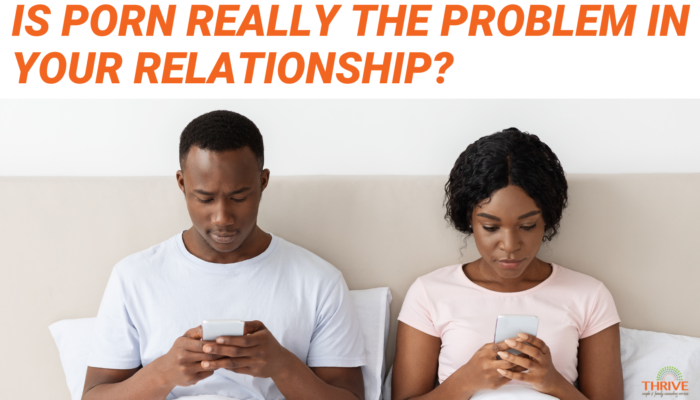Want better sex with your partner? Learn more about our Sex Therapy with Couples!
Join us for this blog series on three important steps to better sex
Step 1: Get Educated – if you want better sex, sometimes it helps to take an inventory of your sex education. We aren’t talking about health class demonstration of condoms and bananas from your youth here. We are talking about good and accurate information about your body and how (pleasurable) sex works. Do you have myths you’ve been believing that are prohibiting your ability to enjoy sex? Let us help you learn what’s true about your amazing body and capacity to connect through sex.
Step 2: Get Intimate With Yourself and Your Partner – It’s equally important to explore how you feel about your own body and what happens during sex. What is the emotional relationship you have with yourself? Most of us have some vulnerable feelings rattling around in there. It’s what we DO with those vulnerable feelings that can make a huge difference in having better sex. Do you shut down, avoid, or numb out because of how you’re feeling about sex? Trust us, thought it may seem counter intuitive, sharing your fears and vulnerabilities (yes, you BOTH have them) will bring you closer and lead to more satisfying intimacy. You don’t need to put on a show and pretend to be perfect to have great sex. In fact, that’s probably a dead end that won’t get you where you want to go. And PS, your partner is still not a mind reader.
Step 3: Grow Strong as a Couple – This may sound obvious, but the stronger your relationship as a couple is, the more enjoyable sex is likely to be. How’s your communication? Do you prioritize quality time together? Do you have intimate conversations? Can you ask for emotional closeness and feel secure that your partner will respond? How are your conflict resolution skills?
Step 1 – Get Educated About Pleasure!
Whether it is through a (lack of) sex education or pornography, many women and their sexual partners get misinformation about how their bodies work. Most of our sex education (if we get it at all) is focused on the risky aspects of sex. While obviously it’s important for us to know about STI (sexually transmitted infection) and unwanted pregnancy prevention, this focus on education leaves out lots of really important information about sexual pleasure.
Frequently, this leads to a lot of avoidable shame and embarrassment surrounding the topic of sex. One area where this is especially true is with orgasm, female orgasm in particular. These negative feelings most certainly can impact the quality of your sex life.
We often find clients coming to often untrue and catastrophic conclusions about their body and their sex experiences:
- “Why am I not more interested in sex?”
- “We’re not sexually compatible.”
- “I’m broken”
- “I’m not good at sex.”
- “My body isn’t normal.”
Worry and stress due to lack of orgasm can lead to both physical and emotional disconnection between partners.
If you’re feeling discouraged about the sexual intimacy in your relationship, first take a look at some of these frequent sexual myths! Some of these are geared toward heterosexual relationships, but fortunately, there’s a lot of good stuff to learn if you are LGBTQ+ also.
MYTH ONE: Most women orgasm during intercourse
FACT – It is very common for women not to orgasm during vaginal penetration. In fact, 75% of women do not reliably orgasm during vaginal intercourse. (1)
Don’t be ashamed to tell your partner you didn’t reach orgasm. Spend your time together exploring what feels good without the pressure of racing to orgasm. Communicate what feels best to you, and what is less favorite. This type of open conversation only helps your partner accomplish their goal—pleasing you!
MYTH TWO: Penis size matters
FACT – Actually, orgasms from vaginal penetration depend more on the female anatomy than the male’s. One of the biggest factors affecting this is the “C to V distance” or the distance between the clitoris and the vagina. The closer the two, less than 2.5 cm to be exact, the easier it is to orgasm through penetration alone. (2)
Don’t worry if your body doesn’t fit this mold. There are many other ways to stimulate your clitoris during intercourse!
MYTH THREE: Sex means vaginal penetration
FACT – While sex can include vaginal penetration, your safest bet for an orgasm would be mixing things up. It is easier for women to experience an orgasm through multiple forms of stimulation.
Partners – direct your focus to her clitoris. Get creative with your partner! Let your hands, mouth and maybe even a toy join the fun!
MYTH FOUR: Most people orgasm at the same time.
FACT – Remember the expression—Women are like ovens. Men are like microwaves? Most women take longer than men to reach orgasm. On average, it takes 20 minutes of sexual stimulation for a woman to climax. (3)
If climaxing together is something that is important for you and your partner, communication is key. Spend some foreplay time revving her engines up first. Play the game of red light green light until you are cruising down Climax Lane together.
MYTH FIVE: Longer sex is better
FACT – The length of intercourse (vaginal penetration) is not a reliable factor in females reaching orgasm. For some, engines are revved quicker with fantasy and foreplay and they will reach orgasm sooner. For others, depending on arousal cycles, orgasm will take longer. There is no textbook amount of time thrusting proven to lead to The Big O.
MYTH SIX: Sex is better without a condom
FACT – There is no research evidence that condoms affect female orgasm. However, not using condoms will put you at risk for sexually transmitted infection (STI) and unwanted pregnancy.
Talk to your partner about your birth control and safe sex practices.
MYTH SEVEN: My vagina should look a certain way.
FACT – There is no such thing as a perfect vagina. Vaginas come in many shapes, sizes, and colors and are covered with all different types and styles of pubic hair. All bodies look different and they are all beautiful.
However, how you feel about your vagina can affect your ability to reach orgasm. Shame and embarrassment can gear your body up for protection, making you both mentally and physically a little too tense for intimacy.
Get to know your body. Take a hand mirror and check out your vulva. If you feel comfortable, include your partner on this exploration. Let them tell you what they see. Sometimes hearing a loved one’s perspective can calm that harsh inner critic. The better you feel about your body, the better your body can feel!
Remember: Your pleasure is important. Your orgasm matters. To protect your pleasure and ensure an orgasm, communication with your partner is essential.
Stay Tuned – Look for the next two posts in this series on finding better sex!
If you and your partner want to learn more about your sexual experience check out these great references– Come As You Are By: Emily Nagoski or Becoming Cliterate By: Laurie Mintsz.
If you feel you want some help broaching and navigating the topic of better sex and live in the Denver, CO area —schedule with our couples and sexual intimacy specialists by calling 303-513-8975, X1 or schedule online any time! Schedule Appointment
References: Lloyd, E. (2006). The Case of the Female Orgasm. The Harvard Press
Wallen, K. & Llyod, E. (May 2011). Female Sexual Arousal: Genital Anatomy and Orgasm in Intercourse. Hormones and Behavior, 59 (5).
Nagoski, E. (2015). Come as You Are: The Surprising New Science that Will Transform Your Sex Life. New York: Simon & Schuster Paperbacks.




